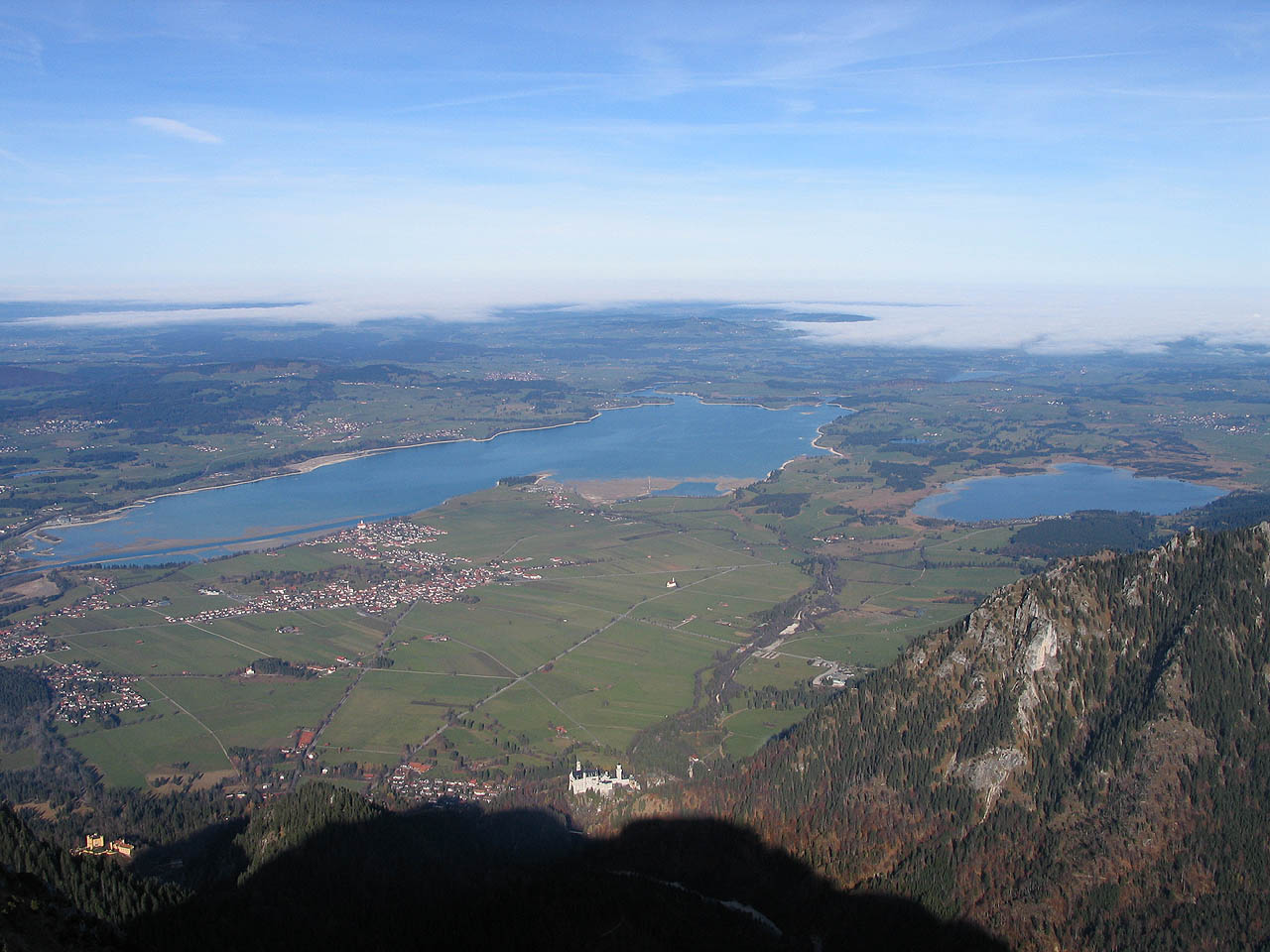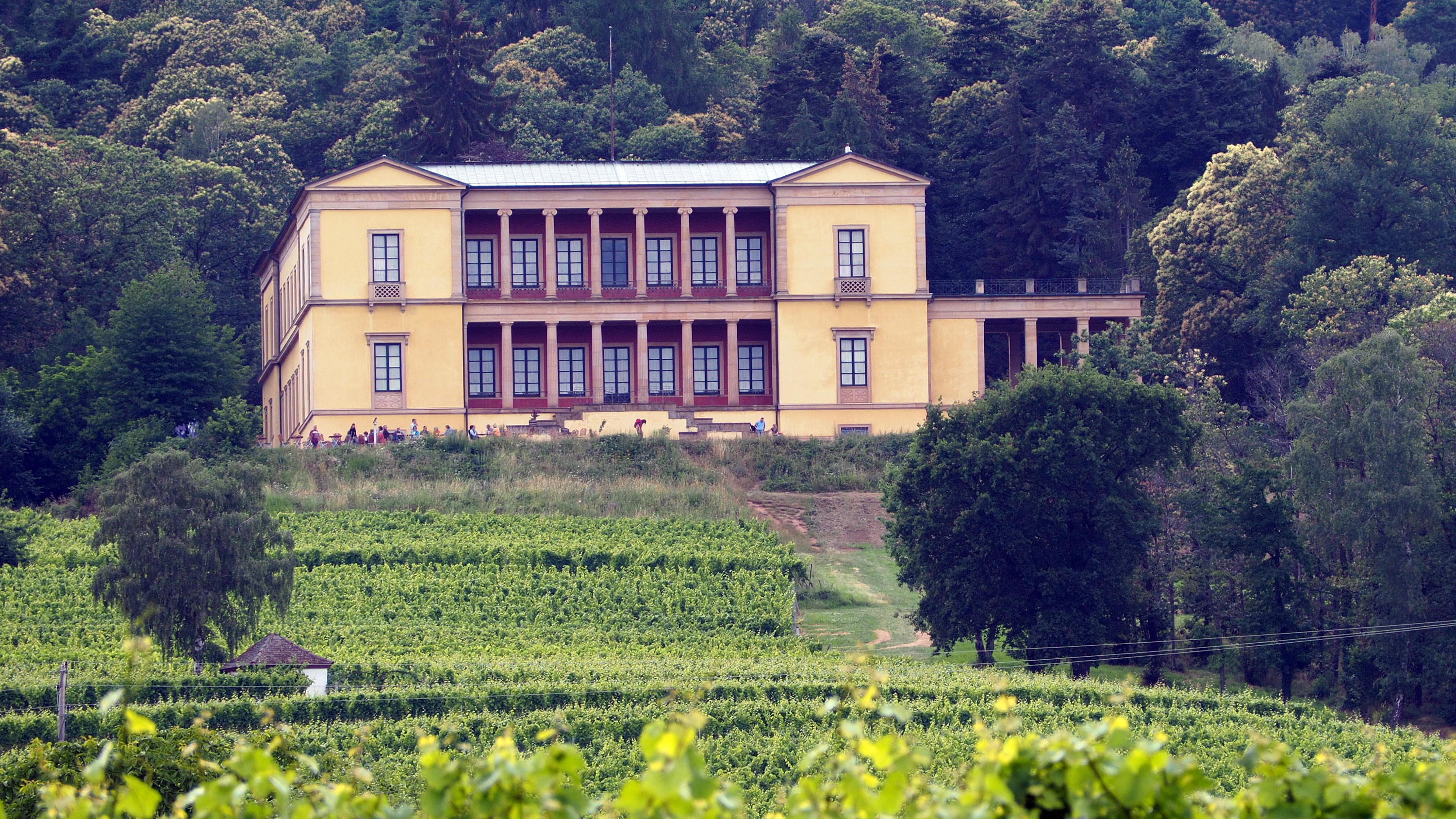|
August Drumm
August Drumm (26 May 1862, Ulmet – 21 October 1904, Munich) was a German sculptor. Life and work He was the eighth of nine children born to Abraham and Maria Drumm, who were millers. Five of his siblings died in childhood. At first, he was more devoted to manual work than to his lessons at school in Kaiserslautern. In 1881, after failing at several schools in Kusel and Kaiserslautern, and at a commercial apprenticeship, he prevailed against his father's wishes and was able to enroll at the Kunstgewerbeschule in Munich. There he studied with the sculptor, . This became his chosen profession. Two years later, he took classes at the Academy of Fine Arts with the monumental sculptor, Syrius Eberle. This was where he met his lifelong friend and associate, , and gained the support of Luitpold, Prince Regent of Bavaria. This enabled him to study in Florence and Rome from 1887 to 1890, and would later lead to his appointment as a Professor. In 1899, he created what is conside ... [...More Info...] [...Related Items...] OR: [Wikipedia] [Google] [Baidu] |
Rome
, established_title = Founded , established_date = 753 BC , founder = King Romulus ( legendary) , image_map = Map of comune of Rome (metropolitan city of Capital Rome, region Lazio, Italy).svg , map_caption = The territory of the ''comune'' (''Roma Capitale'', in red) inside the Metropolitan City of Rome (''Città Metropolitana di Roma'', in yellow). The white spot in the centre is Vatican City. , pushpin_map = Italy#Europe , pushpin_map_caption = Location within Italy##Location within Europe , pushpin_relief = yes , coordinates = , coor_pinpoint = , subdivision_type = Country , subdivision_name = Italy , subdivision_type2 = Regions of Italy, Region , subdivision_name2 = Lazio , subdivision_type3 = Metropolitan cities of Italy, Metropolitan city , subdivision_name3 = Metropolitan City of Rome Capital, Rome Capital , government_footnotes= , government_type = Mayor–council gover ... [...More Info...] [...Related Items...] OR: [Wikipedia] [Google] [Baidu] |
German Sculptors
German(s) may refer to: * Germany (of or related to) **Germania (historical use) * Germans, citizens of Germany, people of German ancestry, or native speakers of the German language ** For citizens of Germany, see also German nationality law **Germanic peoples (Roman times) * German language **any of the Germanic languages * German cuisine, traditional foods of Germany People * German (given name) * German (surname) * Germán, a Spanish name Places * German (parish), Isle of Man * German, Albania, or Gërmej * German, Bulgaria * German, Iran * German, North Macedonia * German, New York, U.S. * Agios Germanos, Greece Other uses * German (mythology), a South Slavic mythological being * Germans (band), a Canadian rock band * "German" (song), a 2019 song by No Money Enterprise * ''The German'', a 2008 short film * "The Germans", an episode of ''Fawlty Towers'' * ''The German'', a nickname for Congolese rebel André Kisase Ngandu See also * Germanic (disambiguation ... [...More Info...] [...Related Items...] OR: [Wikipedia] [Google] [Baidu] |
1904 Deaths
Nineteen or 19 may refer to: * 19 (number), the natural number following 18 and preceding 20 * one of the years 19 BC, AD 19, 1919, 2019 Films * ''19'' (film), a 2001 Japanese film * ''Nineteen'' (film), a 1987 science fiction film Music * 19 (band), a Japanese pop music duo Albums * ''19'' (Adele album), 2008 * ''19'', a 2003 album by Alsou * ''19'', a 2006 album by Evan Yo * ''19'', a 2018 album by MHD * ''19'', one half of the double album '' 63/19'' by Kool A.D. * '' Number Nineteen'', a 1971 album by American jazz pianist Mal Waldron * ''XIX'' (EP), a 2019 EP by 1the9 Songs * "19" (song), a 1985 song by British musician Paul Hardcastle. * "Nineteen", a song by Bad4Good from the 1992 album ''Refugee'' * "Nineteen", a song by Karma to Burn from the 2001 album ''Almost Heathen''. * "Nineteen" (song), a 2007 song by American singer Billy Ray Cyrus. * "Nineteen", a song by Tegan and Sara from the 2007 album '' The Con''. * "XIX" (song), a 2014 song by S ... [...More Info...] [...Related Items...] OR: [Wikipedia] [Google] [Baidu] |
1862 Births
Year 186 ( CLXXXVI) was a common year starting on Saturday (link will display the full calendar) of the Julian calendar. At the time, it was known as the Year of the Consulship of Aurelius and Glabrio (or, less frequently, year 939 ''Ab urbe condita''). The denomination 186 for this year has been used since the early medieval period, when the Anno Domini calendar era became the prevalent method in Europe for naming years. Events By place Roman Empire * Peasants in Gaul stage an anti-tax uprising under Maternus. * Roman governor Pertinax escapes an assassination attempt, by British usurpers. New Zealand * The Hatepe volcanic eruption extends Lake Taupō and makes skies red across the world. However, recent radiocarbon dating by R. Sparks has put the date at 233 AD ± 13 (95% confidence). Births * Ma Liang, Chinese official of the Shu Han state (d. 222) Deaths * April 21 – Apollonius the Apologist, Christian martyr * Bian Zhang, Chinese official and ... [...More Info...] [...Related Items...] OR: [Wikipedia] [Google] [Baidu] |
Neuschwanstein Castle
Neuschwanstein Castle (german: Schloss Neuschwanstein, , Southern Bavarian: ''Schloss Neischwanstoa'') is a 19th-century historicist palace on a rugged hill above the village of Hohenschwangau near Füssen in southwest Bavaria, Germany. The palace was commissioned by King Ludwig II of Bavaria as a retreat and in honour of Richard Wagner. Ludwig chose to pay for the palace out of his personal fortune and by means of extensive borrowing, rather than Bavarian public funds. Construction began in 1869, but was never fully completed. The castle was intended as a private residence for the King, until he died in 1886. It was open to the public shortly after his death. Since then more than 61 million people have visited Neuschwanstein Castle. More than 1.3 million people visit annually, with as many as 6,000 per day in the summer. Location The municipality of Schwangau lies at an elevation of at the southwest border of the German state of Bavaria. Its surroundings are char ... [...More Info...] [...Related Items...] OR: [Wikipedia] [Google] [Baidu] |
Zweibrücken
Zweibrücken (; french: Deux-Ponts, ; Palatinate German: ''Zweebrigge'', ; literally translated as "Two Bridges") is a town in Rhineland-Palatinate, Germany, on the Schwarzbach river. Name The name ''Zweibrücken'' means 'two bridges'; older forms of the name include Middle High German ''Zweinbrücken'', Latin ''Geminus Pons'' and ''Bipontum'', and French ''Deux-Ponts'', all with the same meaning. History The town was the capital of the former Imperial State of Palatine Zweibrücken owned by the House of Wittelsbach. The ducal castle is now occupied by the high court of the Palatinate (''Oberlandesgericht''). There is a fine Gothic Protestant church, Alexander's church, founded in 1493 and rebuilt in 1955. From the end of the 12th century, Zweibrücken was the seat of the County of Zweibrücken, the counts being descended from Henry I, youngest son of Simon I, Count of Saarbrücken (d. 1182). The line became extinct on the death of Count Eberhard II (1394), who in 1385 ha ... [...More Info...] [...Related Items...] OR: [Wikipedia] [Google] [Baidu] |
House Of Wittelsbach
The House of Wittelsbach () is a German dynasty, with branches that have ruled over territories including Bavaria, the Palatinate, Holland and Zeeland, Sweden (with Finland), Denmark, Norway, Hungary (with Romania), Bohemia, the Electorate of Cologne and other prince-bishoprics, and Greece. Their ancestral lands of the Palatinate and Bavaria were Prince-electorates, and the family had three of its members elected emperors and kings of the Holy Roman Empire. They ruled over the Kingdom of Bavaria which was created in 1805 and continued to exist until 1918. The House of Windsor, the reigning royal house of the Monarchy of the United Kingdom, British monarchy, are descendants of Sophia of Hanover, a Wittelsbach Princess of the Palatinate by birth and Electress of Hanover by marriage, who had inherited the succession rights of the House of Stuart and passed them on to the House of Hanover. History When Otto I, Count of Scheyern, died in 1072, his third son Otto II, Count of Sche ... [...More Info...] [...Related Items...] OR: [Wikipedia] [Google] [Baidu] |
Edenkoben
Edenkoben () is a municipality in the Südliche Weinstraße district, in Rhineland-Palatinate, Germany. It lies approximately halfway between Landau and Neustadt an der Weinstraße. Edenkoben is one of the towns situated along the German Wine Route. Edenkoben is the seat of the ''Verbandsgemeinde'' ("collective municipality") Edenkoben. History This part of the Rhineland passed to Bavaria at 1815 following the Congress of Vienna, which reallocated many of the territories that had comprised Napoleon's empire. Like several towns in the area, Edenkoben has both a Roman Catholic and a Protestant church (recalling King Maximillian's marriage to a Protestant princess). Edenkoben's status as an administrative and cultural centre for the surrounding villages is reflected in the presence of several high-grade schools. The little town also has a considerable cultivation and trade in wine. Outside the primary (agricultural) sector, industries include the manufacture of automotive ... [...More Info...] [...Related Items...] OR: [Wikipedia] [Google] [Baidu] |
Magnum Opus
A masterpiece, ''magnum opus'' (), or ''chef-d’œuvre'' (; ; ) in modern use is a creation that has been given much critical praise, especially one that is considered the greatest work of a person's career or a work of outstanding creativity, skill, profundity, or workmanship. Historically, a "masterpiece" was a work of a very high standard produced to obtain membership of a guild or academy in various areas of the visual arts and crafts. Etymology The form ''masterstik'' is recorded in English or Scots in a set of Aberdeen guild regulations dated to 1579, whereas "masterpiece" is first found in 1605, already outside a guild context, in a Ben Jonson play. "Masterprize" was another early variant in English. In English, the term rapidly became used in a variety of contexts for an exceptionally good piece of creative work, and was "in early use, often applied to man as the 'masterpiece' of God or Nature". History Originally, the term ''masterpiece'' referred to a piece of w ... [...More Info...] [...Related Items...] OR: [Wikipedia] [Google] [Baidu] |
Florence
Florence ( ; it, Firenze ) is a city in Central Italy and the capital city of the Tuscany region. It is the most populated city in Tuscany, with 383,083 inhabitants in 2016, and over 1,520,000 in its metropolitan area.Bilancio demografico anno 2013, datISTAT/ref> Florence was a centre of medieval European trade and finance and one of the wealthiest cities of that era. It is considered by many academics to have been the birthplace of the Renaissance, becoming a major artistic, cultural, commercial, political, economic and financial center. During this time, Florence rose to a position of enormous influence in Italy, Europe, and beyond. Its turbulent political history includes periods of rule by the powerful Medici family and numerous religious and republican revolutions. From 1865 to 1871 the city served as the capital of the Kingdom of Italy (established in 1861). The Florentine dialect forms the base of Standard Italian and it became the language of culture throug ... [...More Info...] [...Related Items...] OR: [Wikipedia] [Google] [Baidu] |
.png)





